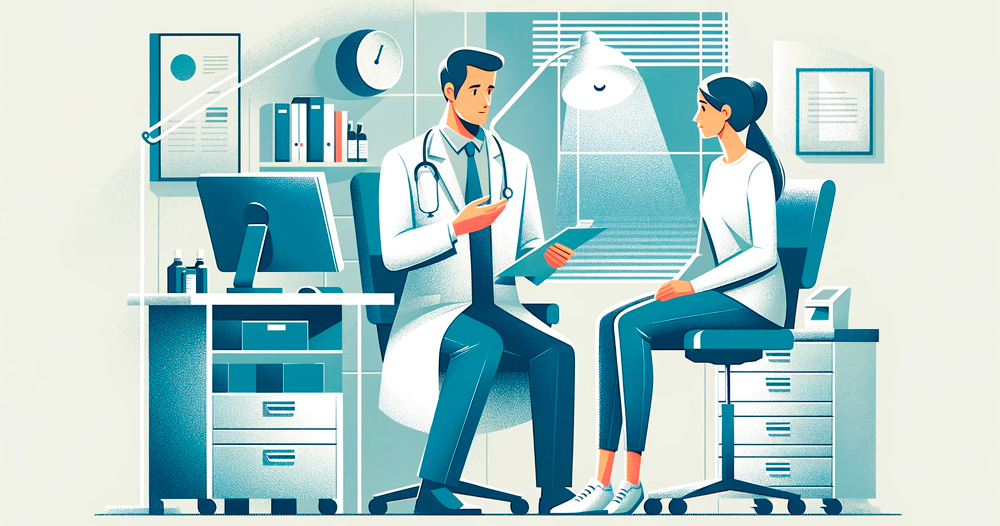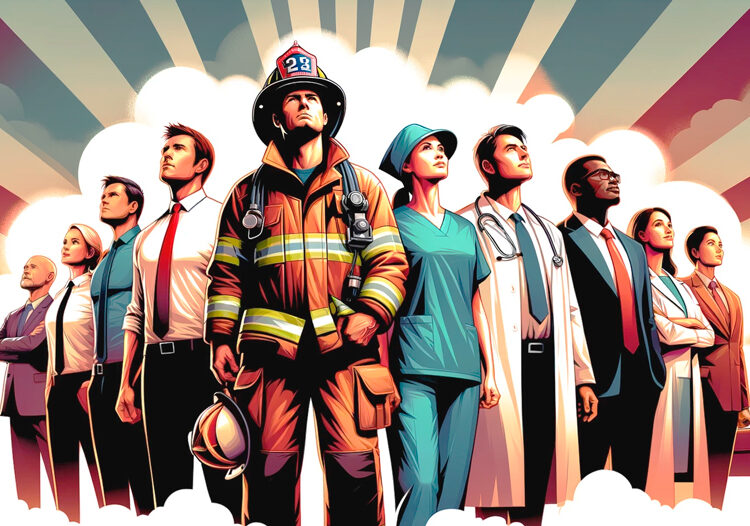The world of work is rapidly evolving, driven by the unstoppable forces of artificial intelligence (AI) and automation. While these advancements bring undeniable benefits like increased efficiency and innovation, they also raise concerns about job displacement. As AI continues its inexorable march, the question arises: what jobs are safe from AI?
AI is a double-edged sword. On one hand, it automates repetitive tasks, boosting efficiency and propelling progress. However, its ability to replicate human capabilities puts jobs involving predictable, rule-based routines at risk.
Table of contents
Jobs at Risk
- Data Entry and Processing: AI-powered tools are automating data entry, document processing, and basic data analysis, jeopardizing these roles.
- Manufacturing and Assembly Lines: Robots are increasingly taking over repetitive, precise tasks in manufacturing, replacing human labor.
- Customer Service and Call Centers: AI chatbots and virtual assistants are handling routine inquiries, reducing reliance on human customer service representatives.
- Repetitive, Rule-Based Tasks: Jobs across industries relying on predictable, rule-based processes face automation, regardless of their specific field.
Jobs Protected from AI
While AI poses challenges, it also creates opportunities. Jobs demanding skills and abilities AI struggles to replicate will remain in high demand. These include:
- Creativity, Innovation, and Problem-Solving: The ability to think critically, solve complex problems, and find innovative solutions will remain valuable in the face of AI.
- Social Intelligence and Emotional Intelligence: Jobs requiring strong interpersonal skills, empathy, and relationship-building skills will be crucial as the human landscape evolves.
- Dexterity, Adaptability, and Physical Skills: Jobs demanding physical dexterity, adaptability to changing environments, and hands-on skills are less susceptible to automation.
- Human Judgment and Decision-Making: Jobs requiring ethical judgments, critical decision-making, and nuanced understanding of human behavior will continue to be essential.
While AI’s impact on the job market is undeniable, specific industries and professions offer havens for human skills and expertise. Let’s delve into several key sectors and explore jobs safe from AI:
Healthcare and Medicine
Doctors, nurses, therapists, and counselors: AI can’t replace the human touch, empathy, and nuanced judgment required in healthcare professions. Doctors diagnose, nurses provide care, and therapists offer guidance, tasks demanding a deep understanding of human behavior and complex decision-making.
Surgeons, dentists, and other medical professionals: Precision, dexterity, and the ability to adapt to unforeseen circumstances are essential for surgeons and dentists. AI may assist, but human skill remains paramount in performing intricate procedures.
Research scientists and healthcare professionals: AI can analyze data and identify patterns, but human scientists are crucial for interpreting findings, asking critical questions, and driving medical breakthroughs.

Education and Training
Teachers, professors, and instructors: AI can deliver pre-recorded lectures or personalized learning modules, but it can’t replicate the dynamic nature of human interaction and the art of effective teaching. Educators inspire, mentor, and guide students, fostering critical thinking and nurturing future generations.
Educational consultants and career counselors: Personalized advice, tailored career guidance, and the ability to understand individual needs and aspirations are crucial for success in these roles. AI can’t match the depth of human understanding and empathy required by educational consultants and career counselors.
Training and development specialists: Designing and delivering effective training programs requires understanding human psychology, learning styles, and the ability to adapt content to diverse audiences. These skills are uniquely human and AI cannot replicate them.
Skilled Trades and Technical Fields
Electricians, plumbers, and construction workers: These jobs require manual dexterity, problem-solving skills, and the ability to adapt to changing environments. AI can’t climb ladders, fix complex electrical problems, or navigate unforeseen construction challenges.
Mechanics, engineers, and technicians: Expertise in diagnosing and repairing complex systems, troubleshooting technical problems, and designing innovative solutions are essential for these roles. AI can assist, but human engineers and technicians possess a level of creative problem-solving that surpasses AI capabilities.
Aerospace and aviation professionals: From pilots and air traffic controllers to engineers and technicians, these jobs demand a high level of technical knowledge, precision, and split-second decision-making abilities. AI can’t replicate the situational awareness and quick thinking required in these critical roles.
Creative and Artistic Fields
Artists, writers, and designers: Imagination, originality, and the ability to express oneself through various mediums are the hallmarks of these professions. AI can create derivative works, but it cannot replicate the human capacity for artistic expression and emotional resonance.
Musicians, filmmakers, and photographers: Storytelling, capturing emotion, and conveying human experience through music, film, and photography are uniquely human endeavors. AI may automate some technical aspects, but the creative vision and artistic touch remain irreplaceable.
Entertainers and performers: Live performances, stand-up comedy, and captivating theatrical experiences all depend on human charisma, improvisation, and the ability to connect with an audience on an emotional level. These qualities are beyond the reach of AI.
Reskilling and Upskilling for a Bright Future
The dynamic landscape of work necessitates continuous learning and adaptation to thrive alongside AI. But how can we prepare for this evolving future? Let’s explore strategies for reskilling and upskilling:
Continuous Learning and Adaptation:
Embracing lifelong learning is crucial in the face of AI advancement. This includes:
- Formal education: Taking courses, attending workshops, and pursuing higher education can provide valuable skills and knowledge.
- Online resources: Utilizing online learning platforms, attending webinars, and accessing free educational materials offer flexible and affordable options.
- On-the-job training: Employers can play a crucial role by providing training programs and opportunities for skill development.
- Self-directed learning: Reading industry publications, attending professional conferences, and participating in online communities can foster continuous learning.
Identifying Individual Skills and Strengths:
A self-assessment is vital to determine which skills require further development and which strengths can be leveraged in the AI-driven future. Consider:
- Technical skills: Are you proficient in relevant software, coding languages, or data analysis tools?
- Soft skills: Strong communication, collaboration, and problem-solving skills are always in demand.
- Creative and critical thinking: Develop your ability to analyze, adapt, and find innovative solutions.
- Adaptability and willingness to learn: Embrace change and be open to learning new skills and technologies.

Exploring Training and Educational Opportunities:
Numerous resources are available to support reskilling and upskilling efforts:
- Massive Open Online Courses (MOOCs): Platforms like Coursera, edX, and Udacity offer a wide range of free and paid courses in various fields.
- Bootcamps: Intensive, immersive programs provide focused training in specific skills, such as coding or data science.
- Professional certifications: Earning industry-recognized certifications can validate your skills and enhance your professional profile.
- Mentorship programs: Seek guidance from experienced professionals in your field to accelerate your learning and career growth.
Building a Diverse and Adaptable Skillset:
Instead of focusing on a single skill, cultivate a diverse skillset that allows you to adapt to changing job market demands. Consider:
- Complementary skills: Combine technical expertise with soft skills like communication and critical thinking for well-rounded expertise.
- Emerging technologies: Explore and develop skills in areas like AI, machine learning, and data analysis, which are increasingly in demand.
- Interdisciplinary knowledge: Combining expertise from various fields can create unique and valuable skillsets.
- Lifelong learning mindset: Embrace continuous learning as a lifelong habit to stay relevant and competitive in the evolving job market.
Conclusion
The future of work belongs not to humans or AI alone, but to a collaboration between the two. By leveraging each other’s strengths, we can create a future of shared prosperity and human-centered technology:
Collaboration and Partnership:
- Humans and AI can work together to achieve greater efficiency, productivity, and innovation.
- AI can automate tasks, freeing up human time for creative problem-solving and strategic thinking.
- Humans can provide ethical guidance, ensure responsible AI development, and leverage AI tools to improve decision-making.
Leveraging Human and AI Capabilities:
- AI can analyze data and identify patterns, while humans can interpret findings and make informed decisions based on these insights.
- AI can automate repetitive tasks, while humans can focus on higher-order cognitive functions like creativity and innovation.
- AI can provide personalized learning and support, while humans can offer empathy and guidance in educational settings.
C. Building a Future of Shared Prosperity and Human-Centered Technology:
- By prioritizing ethical AI development and ensuring responsible use, we can mitigate potential risks and maximize benefits for all.
- By focusing on developing human-centric skills and creating jobs in AI-driven fields, we can ensure a future of shared prosperity.
- By investing in education and training programs, we can equip individuals with the skills and knowledge needed to thrive in the AI-powered future.
Through proactive reskilling, upskilling, and collaboration, we can ensure that humans and AI work together to create a future that is both prosperous and equitable. Remember, the future is not predetermined, and by taking action today, we can build a brighter tomorrow for all.






